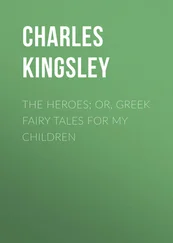Charles Kingsley - The Good News of God
Здесь есть возможность читать онлайн «Charles Kingsley - The Good News of God» — ознакомительный отрывок электронной книги совершенно бесплатно, а после прочтения отрывка купить полную версию. В некоторых случаях можно слушать аудио, скачать через торрент в формате fb2 и присутствует краткое содержание. Жанр: foreign_prose, foreign_religion, Философия, foreign_psychology, foreign_antique, на английском языке. Описание произведения, (предисловие) а так же отзывы посетителей доступны на портале библиотеки ЛибКат.
- Название:The Good News of God
- Автор:
- Жанр:
- Год:неизвестен
- ISBN:нет данных
- Рейтинг книги:4 / 5. Голосов: 1
-
Избранное:Добавить в избранное
- Отзывы:
-
Ваша оценка:
- 80
- 1
- 2
- 3
- 4
- 5
The Good News of God: краткое содержание, описание и аннотация
Предлагаем к чтению аннотацию, описание, краткое содержание или предисловие (зависит от того, что написал сам автор книги «The Good News of God»). Если вы не нашли необходимую информацию о книге — напишите в комментариях, мы постараемся отыскать её.
The Good News of God — читать онлайн ознакомительный отрывок
Ниже представлен текст книги, разбитый по страницам. Система сохранения места последней прочитанной страницы, позволяет с удобством читать онлайн бесплатно книгу «The Good News of God», без необходимости каждый раз заново искать на чём Вы остановились. Поставьте закладку, и сможете в любой момент перейти на страницу, на которой закончили чтение.
Интервал:
Закладка:
And then, after that first blind faith and love in each other which they had before marriage, will come, as the years roll by, a deeper, sounder faith and love from experience.—An experience of which I shall not talk here; for those who have not felt it for themselves would not know what I mean; and those who have felt it need no clumsy words of mine to describe it to them.
Now, my dear friends, this is one of the things by which marriage is consecrated to an excellent mystery, as the Prayer-book says. This is one of the things in which marriage is a pattern and picture of the spiritual union which is between Christ and his Church.
First, as I said, comes blind faith. A young person, setting out in life, has little experience of God’s love; he has little to make him sure that the way of life, and honour, and peace, is to obey God’s laws. But he is told so. His Bible tells him so. Wiser and older people than he tell him so, and God himself tells him so. God himself makes up in the young person’s heart a desire after goodness.
Then he takes it for granted blindly. He says to himself, I can but try. They tell me to taste and see whether the Lord is gracious. I will taste. They tell me that the way of his commandments is the way to make life worth loving, and to see good days. I will try. And so the years go by. The young person has grown middle-aged, old. He or she has been through many trials, many disappointments; perhaps more than one bitter loss. But if they have held fast by God; if they have tried, however clumsily, to keep God’s law, and walk in God’s way, then there will have grown up in them a trust in God, and a love for God, deeper and broader far than any which they had in youth; a love grounded on experience. They can point back to so many blessings which the Lord gave them unexpectedly; to so many sorrows which the Lord gave them strength to bear, though they seemed at first sight past bearing; to so many disappointments which seemed ill luck at the time, and yet which turned out good for them in the end. And so comes a deep, reasonable love to their Heavenly Father. Now they have tasted that the Lord is gracious. Now they can say, with the Samaritans, ‘Now we believe, not because of thy saying, but because we have heard him ourselves, and know that this is indeed the Christ, the Saviour of the world.’ And when sadness and affliction come on them, as it must come, they can look back, and so get strength to look forward. They can say with David, ‘I will go on in the strength of the Lord God. I will make mention only of his righteousness. Oh my God, thou hast taught me from my youth up until now; hitherto have I declared thy wondrous works. Now also, when I am old and grey-headed, oh Lord, forsake me not, till I have showed thy strength unto this generation, and thy power to those whom I leave behind me.’
And so, by remembering what God has been to them, they can face what is coming. ‘They will not be afraid of evil tidings,’ as David says; ‘for their heart is fixed, trusting in the Lord.’
And when old age comes, and brings weakness and sickness, and low spirits, still they have comfort. They can say with David again, ‘I have been young, and now am old, but never saw I the righteous forsaken, nor his seed begging their bread.’
Oh my dear friends, young people especially—there are many things which you may long for which you cannot have: much happiness which is not within your reach. But this you can have, if you will but long for it: this happiness is within your reach, if you will but put out your hand and take it.—The everlasting unfailing comfort of loving God, and of knowing that God loves you. Oh choose that now at once. Choose God’s ways which are pleasantness, and God’s paths which are peace; and then in your old age, whether you become rich or poor, whether you are left alone, or go down to your grave in peace with children and grandchildren to close your eyes, you will still have the one great reward, the true reward, the everlasting reward which Moses promised the old Israelites. You will have reason to love God, who has carried you safe through life, and will carry you safe through death, and to say with all his saints and martyrs, ‘Many things I know not; and many things I have lost: but this I know.—I know in whom I have believed; and this I cannot lose; even God himself, whose name is faithful and true.’
SERMON X
THE RACE OF LIFE
There standeth one among you whom ye know not.
This is a solemn text. It warns us, and yet it comforts us. It tells us that there is a person standing among us so great, that John the Baptist, the greatest of the prophets, was not worthy to unloose his shoes’ latchet.
Some of you know who he is. Some of you, perhaps, do not. If you know him, you will be glad to be reminded of him to-day. If you do not know him, I will tell you who he is.
Only bear this in mind, that whether you know him or not, he is standing among us. We have not driven him away, and cannot drive him away. Our not seeing him will not prevent his seeing us. He is always near us; ready, if we ask him, as the Collect bids us, to ‘come among us, and with great might succour us.’
For, my friends, this is the meaning of the text, as far as it has to do with us. The noble Collect for to-day tells this, and explains to us what we are to think of the Epistle and the Gospel.
The Epistle tells us that the Lord Jesus Christ is at hand, and that therefore we are to fret about nothing, but make our requests known to him. The Gospel tells us that he stands among us. The Collect tells us what we are to do, because he is at hand, because he stands among us.
And what are we to do?
Recollect my friends, what John the Baptist said, according to St. Matthew, after the words in the text—‘He shall baptize you with the Holy Ghost, and with fire.’
The Collect asks him to do that—the first half of it at least. To baptize us with the Holy Ghost, lest he should need to baptize us with fire.
For the Collect says, we have all a race to run. We have all a journey to make through life. We have all so to get through this world, that we shall inherit the world to come; so to pass through the things of time (as one of the Collects says) that we finally lose not the things eternal. God has given each of us our powers and character, marked out for each of us our path in life, set each of us our duty to do.
But how shall we make the proper use of our powers?
How shall we keep to our path in life?
How shall we do our duty faithfully?
In short, so as St. Paul puts it—How shall we run our race, so as not to lose, but to win it?
For the Collect says—and we ought to have found it out for ourselves before now—Our sins and wickedness hinder us sorely in running the race which is set before us.
Our sins and wickedness. The Collect speaks of these as two different things; and I believe rightly, for the New Testament speaks of them as two different things. Sin, in the New Testament, means strictly what we call “failings,” “defects” a missing the mark, a falling short; as it is written—All have sinned, and come short of the glory of God, that is, of the likeness of a perfect man. 1 1 Compare Rom. iii. 23 with I Cor. xi. 7. Let me entreat all young students to consider carefully and honestly the radical meaning of the words αμαρτια and αμαρτανειν. It will explain to them many seemingly dark passages of St. Paul, and perhaps deliver them from more than one really dark superstition.
Thus, stupidity, laziness, cowardice, bad temper, greediness after pleasure—these are strictly speaking what the New Testament calls sins. Wickedness—iniquity—seem to be harder words, and to mean worse offences. They mean the evil things which a man does, not out of the weakness of his mortal nature, but out of his own wicked will, and what the Bible calls the naughtiness of his heart. So wickedness means, not merely open crimes which are punishable by the law, but all which comes out of a man’s own wilfulness and perverseness—injustice (which is the first meaning of iniquity), cunning, falsehood, covetousness, pride, self-conceit, tyranny, cruelty—these seem to be what the Scripture calls wickedness. Of course one cannot draw the line exactly, in any matters so puzzling as questions about our own souls must always be: but on the whole. I think you will find this rule not far wrong—
Читать дальшеИнтервал:
Закладка:
Похожие книги на «The Good News of God»
Представляем Вашему вниманию похожие книги на «The Good News of God» списком для выбора. Мы отобрали схожую по названию и смыслу литературу в надежде предоставить читателям больше вариантов отыскать новые, интересные, ещё непрочитанные произведения.
Обсуждение, отзывы о книге «The Good News of God» и просто собственные мнения читателей. Оставьте ваши комментарии, напишите, что Вы думаете о произведении, его смысле или главных героях. Укажите что конкретно понравилось, а что нет, и почему Вы так считаете.












